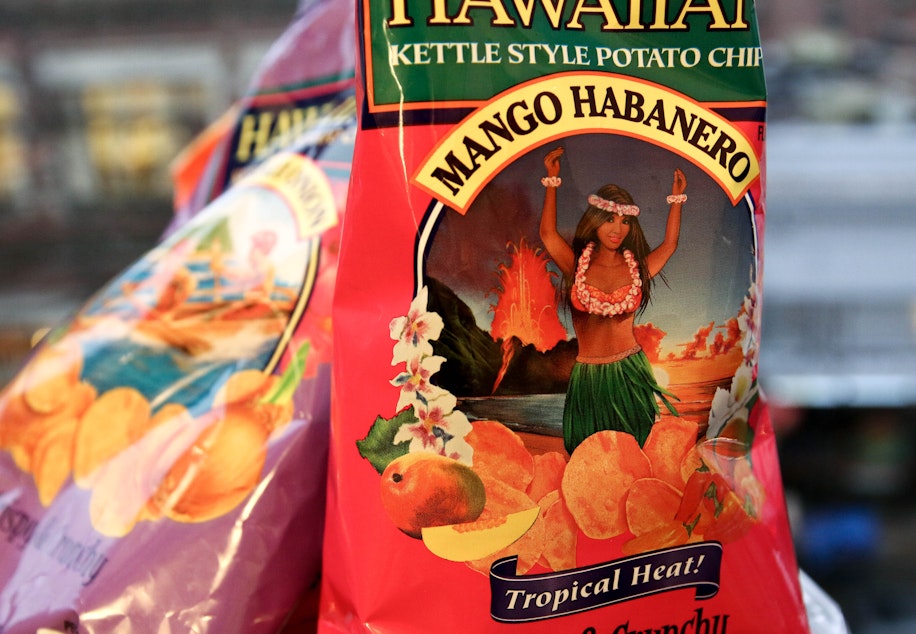Aloha? No, sorry, that was Algona. Those potato chips are not Hawaiian

Last year, a man named Michael Maeda walked into a Save Smart Supermarket in Honolulu and bought a bag of Hawaiian Snacks potato chips.
He believed he was buying chips made in Hawaii, he said in a lawsuit filed this week, made with Hawaiian ingredients.
Alas, they were not.
“Unbeknownst to Mr. Maeda, the Hawaiian snacks he purchased were not from Hawai’i but instead were made in Washington,” the lawsuit, filed this week in federal court, says. “Mr. Maeda would not have purchased the Hawaiian Snacks or would have paid significantly less for them” had he known better.
He was right: Those chips were processed in Algona, a damp exurb of Seattle, at the Tim’s Cascade Snacks facility there. Tim’s is a subsidiary of Pinnacle Foods, Inc., based in New Jersey.
Eating these chips caused suffering, the suit says: "Mr. Maeda suffered injury in fact and lost money as a result of Pinnacle’s misleading, false, unfair and fraudulent practices, described herein."
Sponsored
A California woman, Iliana Sanchez, is the co-plaintiff in this lawsuit. She and Maeda said the chips violate Hawaii’s “Made in Hawaii” statute, which requires that products carrying that label be mostly produced or packaged in the state.
Technically, Hawaiian Snacks chips don’t say they are made in Hawaii. On the back of the bag, below the list of ingredients and a "Hawaiian kettle style potato chips" label, Algona is noted at the location of Tim’s Cascade Snacks.
But the front of several Hawaiian Snacks bags depict a different scene. They have drawings of young, Native Hawaiians, all of them shirtless. “Mango Habanero” flavor features a drawing of a slender Hawaiian woman wearing a grass skirt and casting a “come hither” look, as a volcano erupts behind her. On “Sweet Maui Onion,” two young men with popping biceps row a canoe.
The drawings recall other brands that use fictitious, exotified brown people to sell their products — Aunt Jemima (Quaker Oats), Miss Chiquita (bananas), and Uncle Ben's (rice).
The suit says that using these images of “Hawaiian landmarks, traditions, history, and culture” create the false impression that these chips are made in Hawaii with local ingredients.
Sponsored
“Consumers like the idea of buying products from Hawai’i because it is a unique place and they associate Hawai’i with positive feelings and emotions,” the suit says.
Algona, where it is currently 28 degrees and slush-raining, does not evoke much emotion of any kind.




